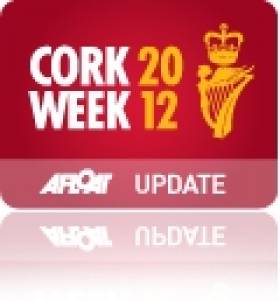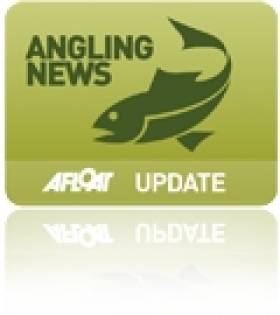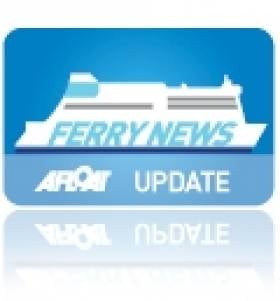Displaying items by tag: costs
Massive Fee Increases Proposed for Harbour Yacht Berths
#IRISH HARBOURS - Yachts berthing at Ireland's main fishing harbours could see their charges hiked by an incredible 800 per cent.
According to The Irish Times, Marine Minister Simon Coveney has announced a mere 21 days for comment and consultation on the draft Fishery Harbour Centres (Rates and Charges) Order 2012. The consultation document is attached to the bottom of this post and available to download as a pdf.
The proposed new charges include an annual fee of €250 per metre for yachts, which could see a 10-metre yacht currently paying €312 a year for a berth shell out as much as €2,500 annually for the same space.
Additional water and electricity costs could even see this bill rise to €3,100 - for berths that come "without proper marina facilities in most cases".
The proposals apply to the State's six fishery centres at Killybegs, Rossaveal, Dingle, Castletownbere, Dunmore East and Howth, only two of which have pontoons suitable for leisure boats.
The Irish Times has more on the story HERE.
Lyons Hopes For a Special Cork Week in 2012
#CORK WEEK - Pat Lyons of Royal Cork Yacht Club has spoken to website The Cork News about the city's hopes for the 2012 Cork Week regatta.
Crosshaven in Cork Harbour will host the club's biggest regatta - which takes place every two years - from 7-13 July this summer.
“Sailing in Ireland and Cork is in great shape,” says Lyons, who is expecting more than 250 boats to pack the harbour for racing and more.
The event is also perfectly timed just two weeks ahead of the 2012 Olympic Games in London, where Royal Cork Yacht Clubman Peter O’Leary will vie for gold with Dublin yachtsman David Burrows in their two-man keelboat.
Though the economic downturn has had a serious effect, costs have been cut across the board and some rules have been relaxed to allow for the widest possible level of participation.
“There are three factors that make Cork special," says Lyons. "Firstly, there is the number of boats and the various fleets. Secondly, there are 10 races planned. While that doesn’t always pan out due to the weather, we have pretty settled weather conditions and an excellent coastline in Cork, with hills running down to the sea.
"And finally, there is the harbour, which, if the weather impacts, provides excellent shelter. We’ve always been able to achieve a higher level of competition than a lot of other regattas, with at least one or two races per day.”
As previously reported on Afloat.ie, preparations for the event have already kicked off with the launch of a dedicated new website.
The Cork News has more on the story HERE.
Man Escapes Jail for Illegal Fishing, Obstructing Officer
#ANGLING - A man narrowly escaped prison for obstructing a fisheries officer in a case taken by Inland Fisheries Ireland (IFI) at Carrickmacross District Court earlier this month.
Piotr Flaga - of Bog Road in Drogheda - was fined €450 by Judge Sean McBride after he was found to have set lines at a lake in Carrickmacross on 18 and 19 August last with the intention of taking coarse fish illegally.
The court heard that when apprehended by Assistant Inspector Ronan O’Brien, Flaga refused to co-operate and would not give his name and address. He then obstructed Asst Insp O’Brien by moving his vehicle towards him in a bid to escape when questioned.
Gardai were called to the scene and subsequently Flaga was issued with two summons.
Flaga entered a guilty plea and was convicted under Sections 301 and 308 of the 1959 Fisheries Act. He was further charged for breach of byelaw 595 of 1977 in relation to fishing in fresh water for coarse fish by means other than rod and line.
The defendant was fined a total of €450 with five months to pay with 14 days imprisonment in default. Some €500 in costs were also awarded to Inland Fisheries Ireland.
Judge MacBride acknowledged Flaga's public apology to Asst Insp O'Brien, but emphasised that any person who came before him in future for a similar offence would face imprisonment.
Bon Voyage to Stena Voyager
The Stena Voyager high-speed ferry will make its final crossing between Belfast and Stranraer in mid-November.
BBC News cites the high cost of running the service, as well as its limited freight capacity, as reasons for the mothballing of the Stena HSS (High Speed Service).
The world's biggest high-speed ferry was a revelation when it was launched in 1996. The catamaran could reach speeds of up to 40 knots powered by enormous gas turbine engines.
But the rising cost of oil prompted a reduction in the ferry's cruising speed to save costs, making room for competition from conventional ferry routes with larger freight capacities.
The Voyager's fate was sealed when Stena Line announced plans to move its Stranraer port to a new location that will shave 20 minutes off the crossing for the two new but standard ferries that will replace it.
As previously reported on Afloat.ie, the Stena HSS between Dun Laoghaire and Holyhead will also be suspended from later this month, though it is planned to resume service in 2012 for the summer season.

































































